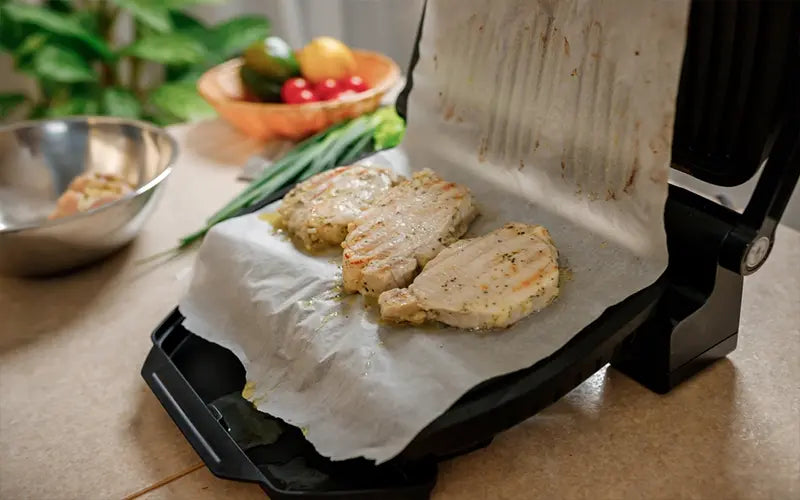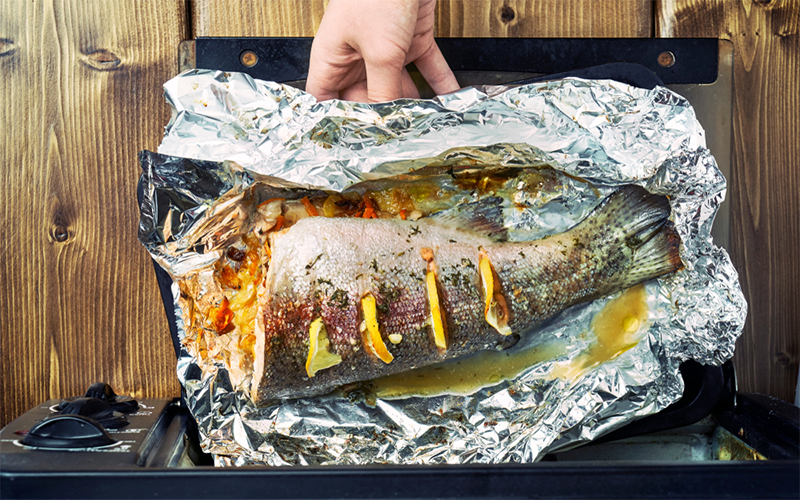
A Step-by-Step Guide On How To Use An Aluminum Foil Roaster
Using aluminum foil roasters is a convenient and efficient way to cook various dishes. These disposable roasting pans are popular for cooking everything from Thanksgiving turkeys to simple weeknight dinners. In this guide, we will explore how to use aluminum foil roasters effectively and safely, covering topics such as preparation, cooking techniques, cleaning, and disposal.
Using An Aluminum Foil Roaster Step-by-Step Guide

Choosing The Right Size And Type
Before you start using an aluminum foil roaster, it's essential to select the right size and type for your cooking needs. Aluminum foil roasters come in various sizes, ranging from small pans suitable for roasting a chicken to large ones designed for whole turkeys. Consider the size of your dish and the number of servings you need to determine the appropriate roaster size.
Different types of aluminum foil roasters are also available, including deep roasters, shallow roasters, and oval roasters. The type you choose depends on the specific recipe you're preparing.
Preparing The Roaster
Once you've chosen the right size and type of aluminum foil roaster, it's time to prepare it for cooking.
a. Clean the Roaster: Before use, clean the roaster thoroughly. Although disposable, they may have accumulated dust or debris during storage.
b. Line the Roaster: While not mandatory, lining the roaster with aluminum foil can make cleanup more manageable. It also helps prevent food from sticking to the pan and makes lifting the cooked dish out of the roaster easier.
c. Grease or Oil: Depending on your recipe, you may need to grease or oil the roaster. This is especially important when cooking items that tend to stick, like roasted vegetables or meats. Use cooking spray, butter, or oil as directed in your recipe.
Cooking Techniques
Aluminum foil roasters are versatile and can be used for various cooking techniques, including roasting, baking, and braising. Here's how to use them for these methods:
a. Roasting: To roast meats or vegetables in an aluminum foil roaster, place the prepared food in the pan, season it, and cover it with aluminum foil. Leave space between the food and the foil to allow for proper heat circulation. Roasting times and temperatures will vary depending on your recipe, so follow the instructions.
b. Baking: Aluminum foil roasters are suitable for baking dishes like lasagna, casseroles, and desserts. Simply prepare your recipe, place it in the roaster, and follow the baking instructions provided. You may need to adjust the cooking time and temperature slightly based on your recipe.
c. Braising: You can use an aluminum foil roaster with a tight-fitting lid or cover it tightly with aluminum foil. This method is excellent for slow-cooking tougher cuts of meat with liquid, creating tender and flavorful dishes.
Checking For Doneness
Regardless of your cooking method, it's crucial to check for doneness to ensure that your food is cooked to perfection. Use a meat thermometer for meats to ensure they reach the appropriate internal temperature. Use visual cues like golden brown crusts or fork-tender textures for other dishes.
Handling And Serving
When your dish is fully cooked, carefully remove it from the oven. Be cautious, as the roaster will be hot. You can use oven mitts or pot holders to protect your hands.
To serve the food, you can either transfer it directly to serving platters or use the aluminum foil roaster as a serving dish if it's in good condition. Just be aware that if the roaster has been in the oven for an extended period, it may become too hot to handle without protection.
Cleaning And Disposal
One of the advantages of using aluminum foil roasters is their easy cleanup. Here's how to handle cleaning and disposal:
a. Reusability: If the roaster is still in good condition after use, you can rinse it out and reuse it for less messy dishes. However, repeated use may weaken the foil, so it's best suited for lighter tasks.
b. Recycling: Aluminum foil roasters are typically recyclable, but check your local recycling guidelines to ensure proper disposal. You can recycle them with other aluminum products if they are not contaminated with food residue.
c. Disposal: If your aluminum foil roaster is too soiled or damaged to recycle, dispose of it in the trash. Be sure to remove any leftover food before throwing it away.
Tips And Safety Considerations
Here are some additional tips and safety considerations for using aluminum foil roasters:
a. Double-Layer for Durability: If you're concerned about the strength of the aluminum foil roaster, consider using two pans stacked together for added support.
b. Avoid Overloading: Don't overfill the roaster, as this can make it challenging to handle and may result in spills or uneven cooking.
c. Check for Leaks: Before placing the roaster in the oven, check for holes or tears in the aluminum foil. Patch them up with additional foil if necessary to prevent leaks.
d. Use Oven Mitts: Always use oven mitts or pot holders when handling hot aluminum foil roasters to avoid burns.
e. Monitor the Oven: Keep an eye on your dish while it's in the oven to ensure it cooks evenly and doesn't spill over.
Conclusion
Aluminum foil roasters are a convenient and versatile option for cooking various dishes. With the right preparation, cooking techniques, and safety considerations, you can use these disposable roasting pans effectively and enjoy delicious meals with easy cleanup. Whether roasting a turkey for a holiday feast or baking a casserole for a weeknight dinner, aluminum foil roasters can be a valuable tool in your kitchen.
Frequently Asked Questions
Are Aluminum Foil Roasters Safe For Cooking?
Yes, aluminum foil roasters are safe for cooking when used correctly. They are designed for single-use or limited reuse and are suitable for roasting, baking, and braising various dishes.
Can I Reuse Aluminum Foil Roasters?
While aluminum foil roasters are designed for single use, you can reuse them for less messy dishes if they are still in good condition after the initial use. However, repeated use may weaken the foil.
Are Aluminum Foil Roasters Recyclable?
Yes, aluminum foil roasters are typically recyclable. You can recycle them with other aluminum products if they are not contaminated with food residue. Check your local recycling guidelines for specific instructions.
How do I prevent food from sticking to the roaster?
To prevent food from sticking, you can line the aluminum foil roaster with aluminum foil, grease it with cooking spray, butter, or oil, and follow your recipe's instructions for greasing and preparation.


